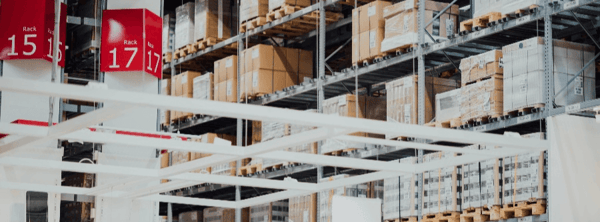How to manage warehouse employees: The simple solution


Managing employees in your warehouse, whether you are in the Middle East, South Africa, or any other location worldwide, can be a challenge for warehouse managers and HR alike.
We discuss the solution that allows you to go about improving job satisfaction, reducing turnover, and thereby optimising warehouse productivity and profitability of the business overall.
What is the solution to effective management of warehouse employees?
The more time a warehouse manager spends on the floor, the more productive and effective the warehouse becomes:
Warehouse managers should be able to monitor and remedy problems in real time, with a quick and solid problem-solving strategy. A warehouse manager that is bogged down with outdated processes, manual functions, and ineffective tools will be everywhere BUT where they are most needed.
If your business does not have a hands-on warehouse manager, or no capability of making that a reality, you may find yourself fielding a number of problems:
Wavering Client Satisfaction
This is the critical measure of how effective your employee management is, and your client feedback and retention will show clearly whether or not the employee management techniques and tools you use are a help, or a hindrance to your business.
Incorrect orders, damaged goods, delays on delivery, and human error by warehouse workers all impact your bottom line, in the form of returns, loss of business, and reputation hits.
Too many – or too few – employees
Your employee complement should reflect your actual requirement at any given point on your calendar. Hiring a large workforce for a quiet period will increase the likelihood of downtime and negative impact warehouse employee productivity, thefts, and poor task management as listed below. Hiring too few to manage demand will result in unmet deliverables and poor job satisfaction.
Reduced employee engagement
Engagement with employees is the starting point to achieve an effective and productive workforce. Without the tools that allow your warehouse manager to engage and interact on the floor, you will not be able to reward top performers, coach under-performers, and monitor the warehouse function as easily.
Following from the above, your performance tracking is key. What helps you to set KPIs and track them on an ongoing basis? How does your warehouse manager consolidate these data into a strategy going forward?
Ineffective task management and work tracking
Allocating and managing tasks consistently reduces the downtime of your warehouse workforce and contributes immensely to the overall productivity of your warehouse team. If your warehouse manager is not able to schedule, allocate, and monitor the tasks at hand, you will find that the errors which lose clients are much more prevalent.
Sub-optimal inventory management
Inventory management is critical in- and of itself, but it impacts the workforce in their day-to-day tasks. An unmanaged inventory is a huge contributor to an employee’s inability to get the job done. Your warehouse management will inform a great deal of this optimisation: where are the issues, and how do you fix them?
Employee down-time and lack of productivity
From the above, we move to the common problem in warehouses worldwide: employee downtime.
How do your orders progress through the warehouse chain? If there are any hurdles in the processes, you employees are likely left waiting for their tasks to be possible. A warehouse manager must be on-site and present to smooth and optimise these processes.
Theft and losses
An unmonitored warehouse allows for a greater incidence of theft and loss, and your managers must identify the reasons for the theft, and the solutions to mitigate these losses. Are employees dissatisfied, unable to make ends meet, or opportunistically preying on your inventory? Again, the solution here is to maximise managerial visibility in your warehouse.
How do we enable your warehouse manager to be present an engaged while also managing the ins and outs of the higher-level warehouse operations?
How a warehouse management system can help you to manage your warehouse employees:
To allow your warehouse manager to be engaged on the warehouse floor, your team requires a warehouse management system that enables them to access warehouse data, orders, outgoing product, and inventory details from the warehouse floor, while also providing data on performance, delivery, and targets.
Your WMS should allow your warehouse manager to be mobile, and exhibit the following functions:
- Systematically record active interactions with employees, including observations and performance measurements
- Review work in the warehouse by wave, job function and task/activity
- Task management: Put a task on hold, re-prioritize a task, assign a task to an employee or release a set of tasks to be completed
- Monitor, plan and forecast work in real-time
- Track the status for a particular customer, including order lookups and wave progress
This is why Manhattan’s warehouse mobility is such a critical element of your success:
With regard to your employee complement, it should deliver information to your warehouse manager that enables a smooth and practical seasonal hiring process:
- A strategic workforce forecast, informed by the projected throughput throughout the year.
- Workforce schedule optimisation, allowing you to schedule labour to optimally handle the inventory at the lowest possible cost.
- Milestone workforce optimisation, which enables you to forecast and schedule labour around pre-planned milestones that create a significant impact on demand such as new product introductions, promotions or seasonality.
Does your warehouse management system do that?
Ours does.Take this opportunity to optimise your full warehouse, with warehouse checklists for all requirements in our Practical Guide to Optimising your Warehouse:
TAGS
- WMS (51)
- Warehouse Best Practice (46)
- Implementing a WMS (29)
- Managing your warehouse (19)
- Omni Channel (18)
- eCommerce (18)
- Blog (16)
- Supply Chain Best Practice (16)
- Customer Journey (9)
- Mid-Level (8)
- Warehouse optimisation (7)
- General Tips (5)
- Industry General (5)
- Information (5)
- Trends (5)
- managing your Supply Chain (5)
- saudi arabia (5)
- Press Release (4)
- smart warehouse (4)
- 3PL (3)
- News (3)
- ERP (2)
- Entry-level (2)
- ROI (2)
- Case Study (1)
- OMS (1)
- Picking (1)
- Solution-Specific (1)
- Transport Management System (1)
Take A Look At The Results Of A Successful WMS Implementation.
See how Tarsus Distribution, in collaboration with SCJ boost overall efficiency by 60%




